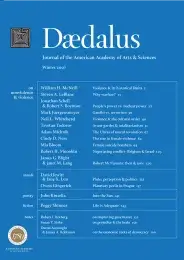Why warfare? Lessons from the past
If we ever hope to end warfare we must first understand why it occurs. Because this is trivially obvious, it is surprising how poorly studied warfare is. Considerable work has been done on the details of particular wars and the events leading up to them, but little has been done to find the underlying reasons for warfare in general. My colleague Kevin Hill and I recently undertook a brief survey of courses on warfare taught at fifteen major research universities. We found numerous courses on specific wars, eighteen on the concepts and methods of war, and only six that we could construe as examinations of the general causes of warfare–and even those were based in a single discipline.
This lack is probably due in part to our approach to social problems in general. Most people tend to think that common sense is adequate for solving them. But we abandoned the commonsense approach to problems in physics and biology long ago, with the result that we have made great progress in these sciences. Despite its obvious importance, there has been little application of the scientific method of hypothesis, comparison, and testing to unearthing the causes of warfare.
One approach to understanding the reasons for warfare is to study deep history. Archaeology, anthropology, ethnohistory, and related disciplines provide great time depth for studying war. They also provide information on how and why warfare took place in a wide array of cultures. Yet this highly relevant information is often ignored. Most political scientists and historians who consider the reasons for warfare start with the modern era, or even the 1800s; fewer go back to the ancient Greeks. And almost all consider only the cultures of Europe and other state-level societies such as China. These studies are relevant, but they are too limited to exhibit general patterns over the entire span of human history and prehistory. Discerning whether or not human warfare has a genetic base, for instance, is an impossible task to accomplish with such limited scope; instead, we must examine evidence from deep history and worldwide ethnography, which represent most of human history and most of human cultural variability.
The global study of warfare is necessary to determine whether war has a single cause or many different causes. If the causes of war have varied over time, then we must discern how and why this is the case. Prima facie, it appears that some modern wars, particularly in the West, are different from wars before the twentieth century, whereas recent regional wars in Africa and Asia appear to have the same causes as ancient wars. If significant changes in the nature of warfare took place in the modern era, knowing how and why such changes arose is necessary for understanding modern wars. . . .
To read the full essay, access the PDF of the volume.
